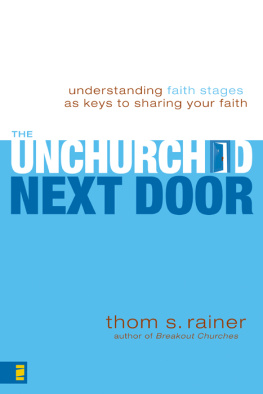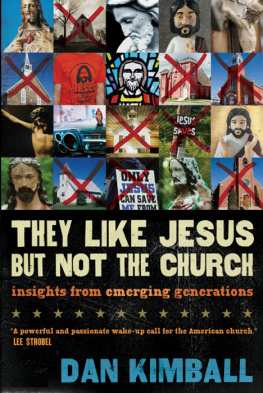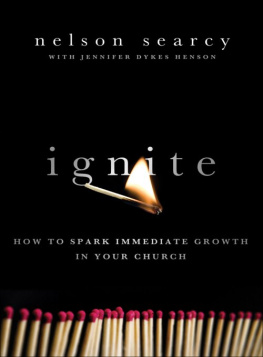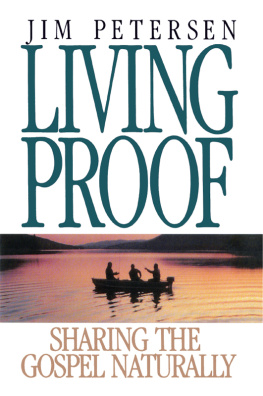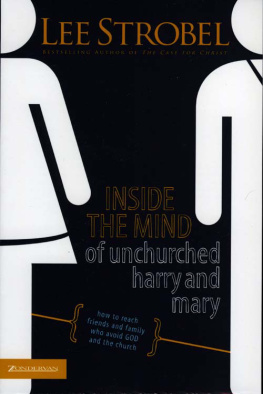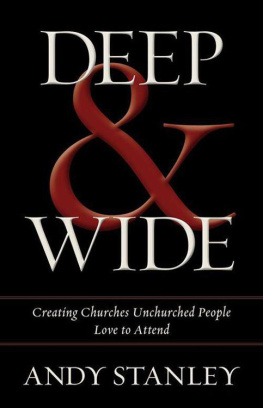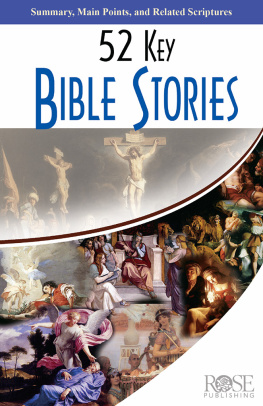I dedicate this book to dear friends who sometimes had different
spiritual perspectives than I do but who have gone on a spiritual
and conversational journey of sharing their convictions
and asking about mine, and pursing the kind of friendship
in which we can learn from each other and mutually influence
one another. I especially think of Dick, Pat, Gerard, Nancy,
Jael, Marvin, and Chris.
Contents
Foreword
Ed Stetzer
A merican Christianity is dying.
Every few months this headline rings out in secular and religious newspapers, during the evening news, and on social media. Bolstered with studies that reveal Americans less willing to identify with traditional religious groups, Christians and non-Christians alike claim we are witnessing the long-awaited collapse of American Christianity.
These arguments were given full form in Robert Joness controversial The End of White Christian America . Published in July 2017, the book weaves together historical themes and data out of the Public Religion Research Institute to prove that Christianityby which Jones means evangelicalismis dying. Jones points to a variety of factors, chief among them shifting demographics and moral attitudes of the broader culture. As evidence, Jones points to changes in religious self-identification/affiliation, concluding that America is turning its back on the Christian church.
Jones proved to be the voice that launched a thousand think pieces, each amplifying the volume and deepening the sense of impending evangelical collapse. As this was already a popular genre for religious and secular pundits alike, we have witnessed a deluge of pieces heralding the death of the Protestant church in America. This narrative is powerful in that it allows each author to supply their own rationale for the decline: the rise of the spiritual nones, a growing divergence between church social morality and culture, or simply that Western secularism has finally taken root.
The result of this constant bombardment is that we have reached a point where most pastors and ministry leaders accept his argument as given fact. No longer confined to clickbait headlines and social media posts, this thinking has begun to permeate our pews and pulpits. At the dinner table and elder meetings, Christians breathlessly whisper to one another about the impending doom of the American church. Equal parts urgency and panic, this attitude has sparked a veritable cottage industry of conferences and books. Each presents the same set of beliefs as gospel truth: the church is declining, people are leaving the church, and those outside the church are resistant to evangelism.
In this context, Dr. Rick Richardsons You Found Me is a breath of fresh air. Armed with research on the state of church outreach and the attitudes of the unchurched toward faith, Richardson charts a compelling vision for church outreach and evangelism in our new, post-Christian world. In the first section of the book, Richardson takes no prisoners in outlining how myths regarding the churchs steep decline or the hostility of our culture to faith sharing can infect and damage our outreach. These myths prove self-fulfilling prophecies, discouraging Christians about the future of their faith and making them hesitant to engage their communities with the gospel. In laying the groundwork for how to engage effectively, Richardson unpacks why these myths do not hold up under close scrutiny and explores churches and ministries that are succeeding despite this narrative. As Richardson points out, it is crucial for pastors and ministry leaders to root out these myths both in their own thinking and in their organizations if they want to instill a culture of effective evangelism.
In the second and third sections, Richardson truly hits his stride through translating his research into practical advice for church leaders seeking to generate a culture of outreach. Through studying churches in the top 10 percent of evangelism, what the book terms conversion communities , Richardson identifies central practices, training, and perspectives that fuel successful evangelism cultures. As such, Richardson follows Pauls encouragement to the Corinthians to imitate me, just as I imitate Christ (1 Cor 11:1 NLT). Moreover, the book reclaims an identity for the church as a missional organization: a group of believers called to and embedded within a specific community for the purpose of serving and evangelizing. It is a return to a holistic understanding of outreach, seeing the needs of the community as a window to live out the gospel and frame spiritual conversations. Richardson gives a robust depiction of the church as not only a place where Gods people are equipped but also as a hospital for the broken, an embassy out of which we are sent, a family table where all are welcome to share in the feast, and a temple where we worship King Jesus. As such, this book is likely to have a significant impact on our understanding of the state of the church as well as inspire Christians to reclaim our calling to go into the world to show and share the love of Jesus.
You Found Me marks the culmination of several years of research directed by Richardson through the Billy Graham Center Institute. It is fitting that Richardson, as director of the institute, should publish the first major research initiative of the center, setting the tone for future projects as advancing scholarly discussions through quality research while simultaneously focusing on equipping pastors and church leaders for the work of ministry. The strength of this research project is seen in part through its combination of quantitative national surveys and qualitative interviews. The result is a book that can draw connections between the broad, macro trends in American religion while digging into the stories and experiences of those who are living out their faith in churches and ministries across the country. You Found Me sets a high bar for future research from the institute and models to similar organizations how to leverage similar studies for the advancement of Gods kingdom and the edification of his church.

Introduction
The Challenge Congregations Face in America
I love pastors and leaders of churches, and I also feel their pain and disappointment when things dont go well. I have been a pastor at various churches for some years, and even when I have not been on staff, I have almost always served as a leader in my church in some capacity. I think of a few of the pastors and leaders for whom I am praying these days. Let me tell you about one of them.
Pastor Nate is a loved and effective pastor. He is there when people are in crisis. He is a good communicator with a warm heart and pastoral understanding in his sermons. He is really likable and liked, even loved.
Nate also has a big heart for reaching people who dont know Jesus. He is Southern Baptist, after all. Part of why he went into ministry was his heart for neighbors and friends and family members who did not know Jesus. But over the years, the everyday demands of the church ministry he leads pushed out any time he might have had to reach out. He wasnt sharing his faith with his friends much and had started to give up on even trying, but his church didnt seem to mind. They liked having Nate all to themselves. Who wouldnt? Nate would not have put it this way, but his life was a parable of gradual mission drift over years. He had lost some of his passion and almost all of his personal practice of reaching out to people outside the church. His church was not growing, and it was even shrinking some, though not a lot. The church would certainly be able to go on for years, but something central was missing from Nates life and ministry, and he knew it.


